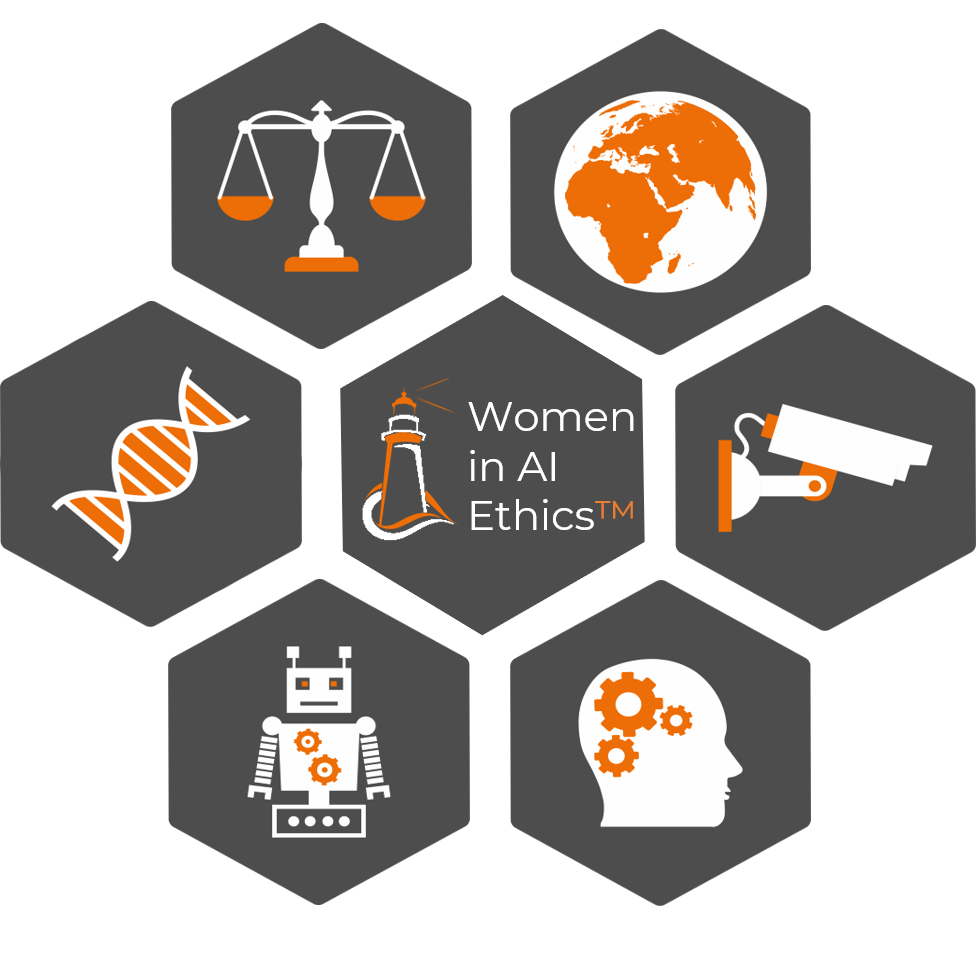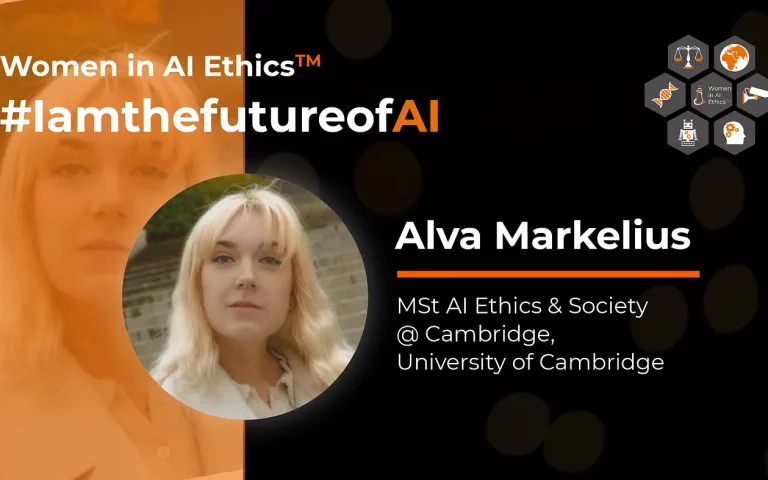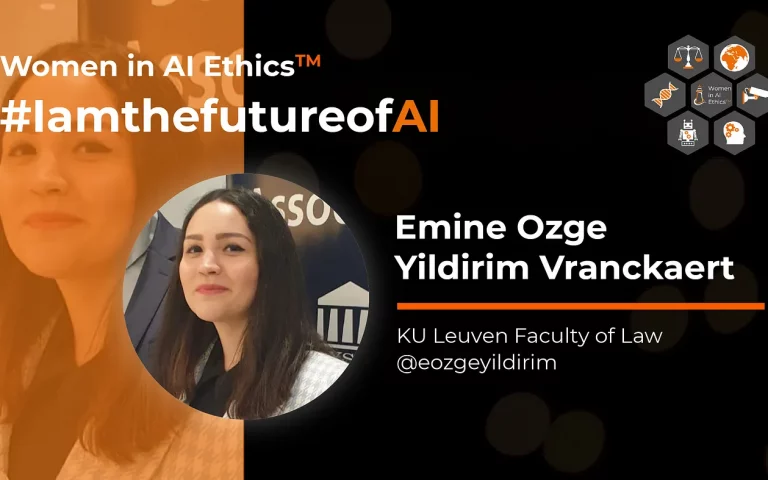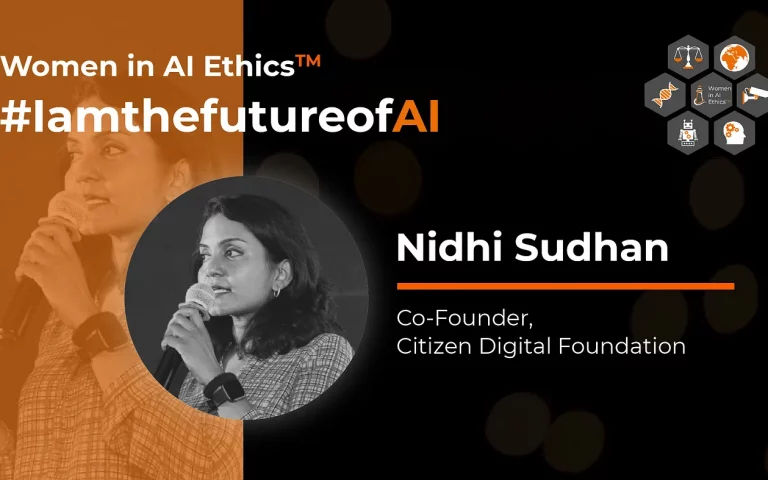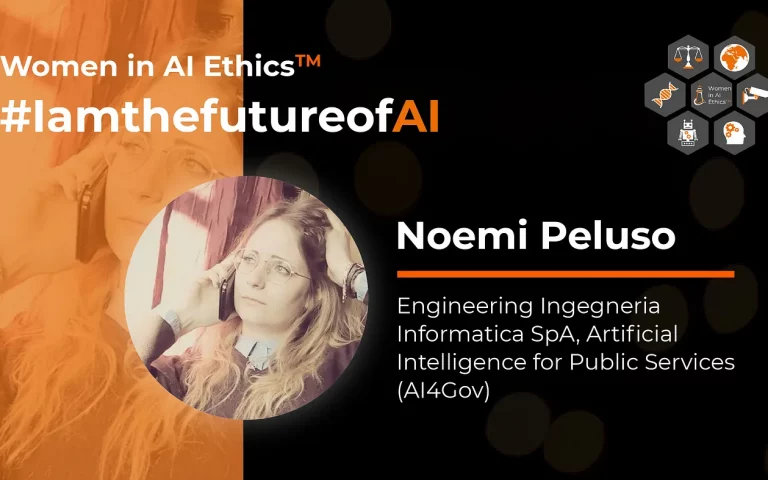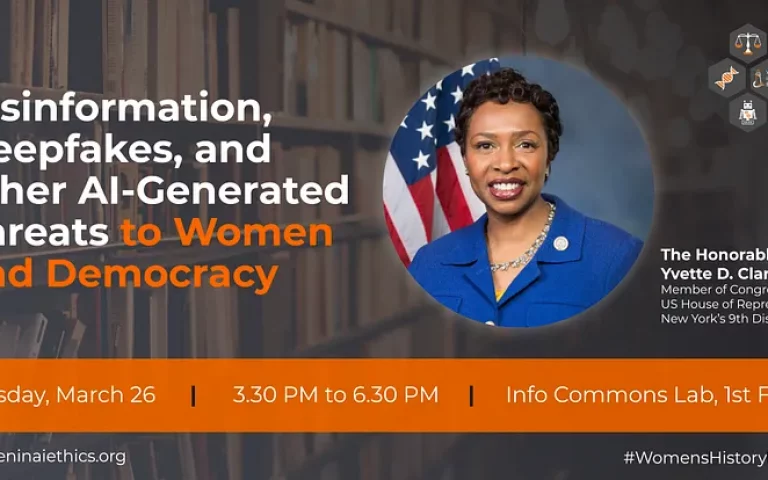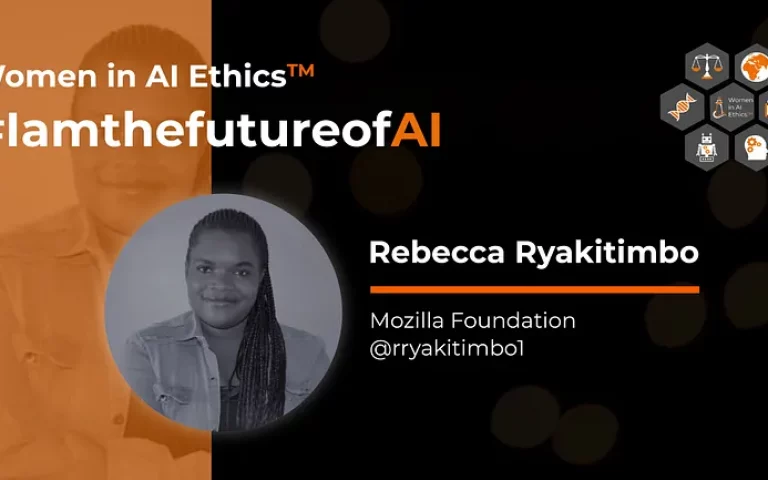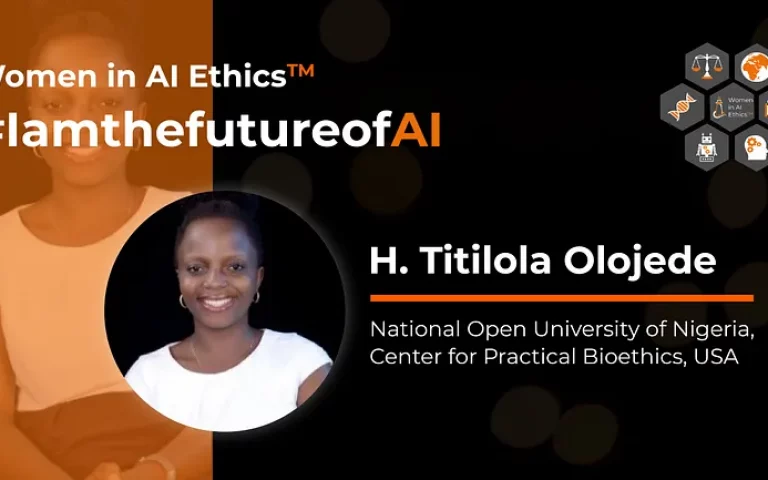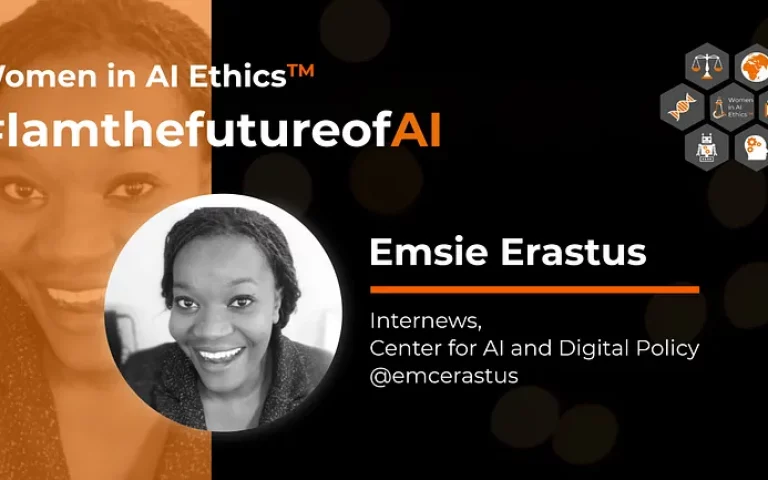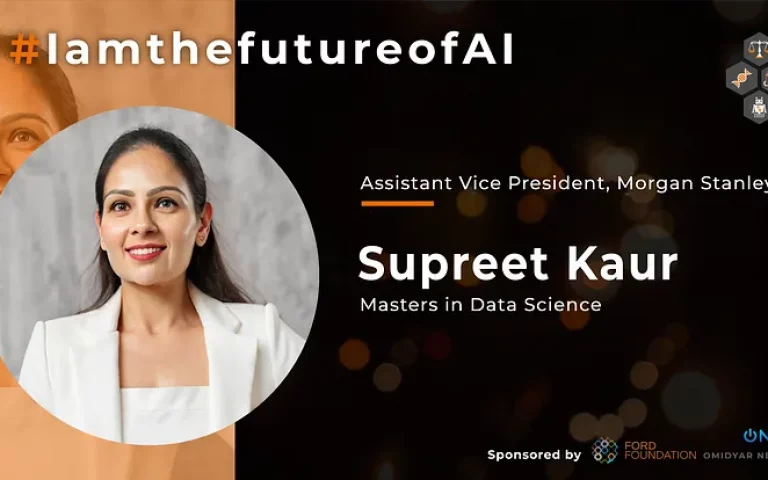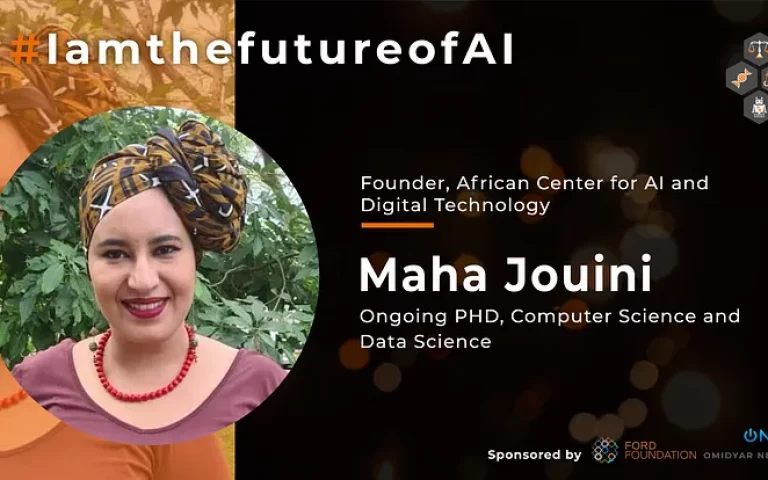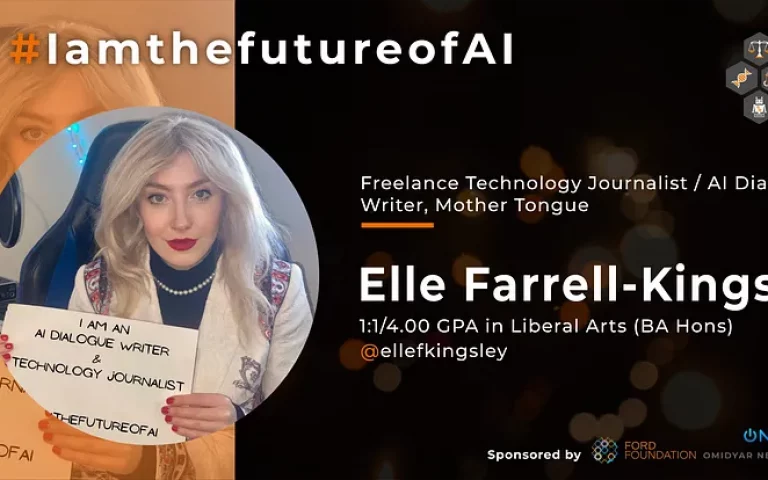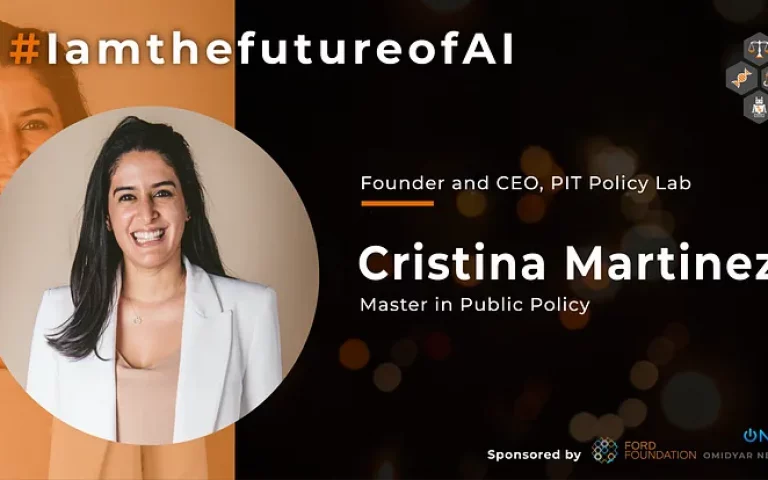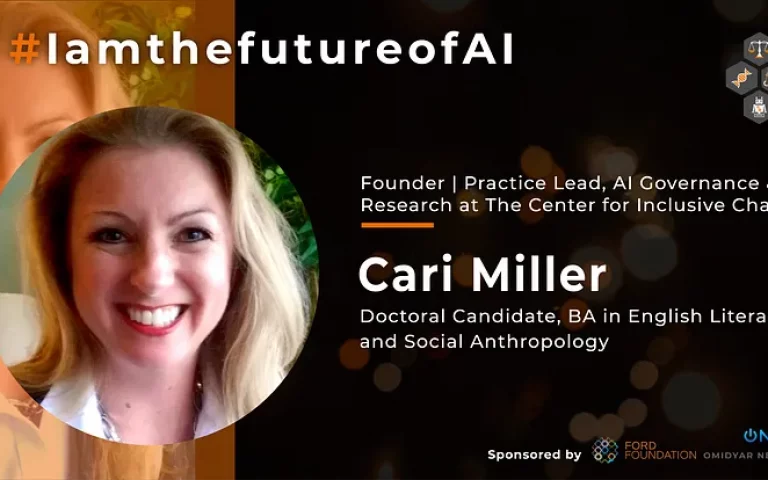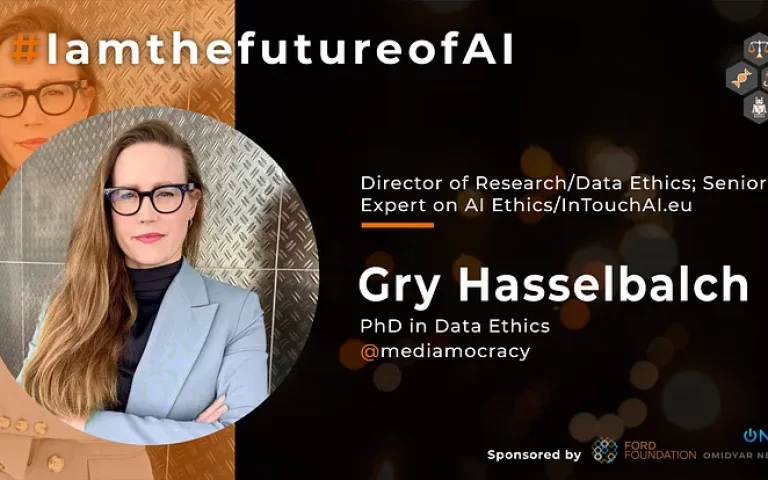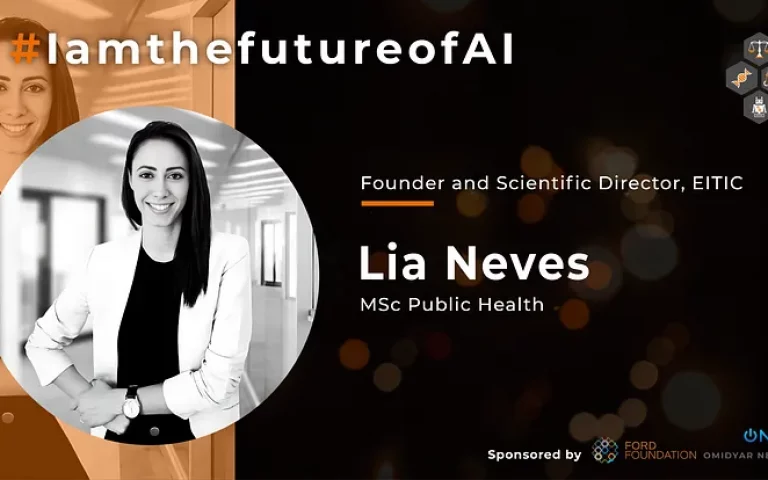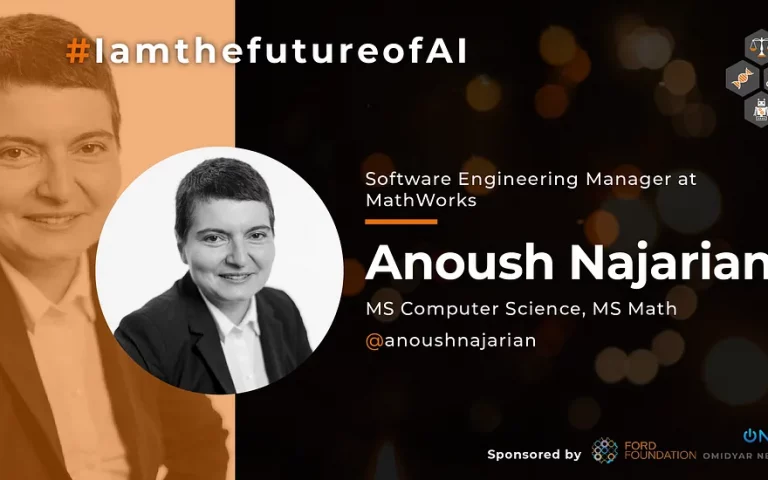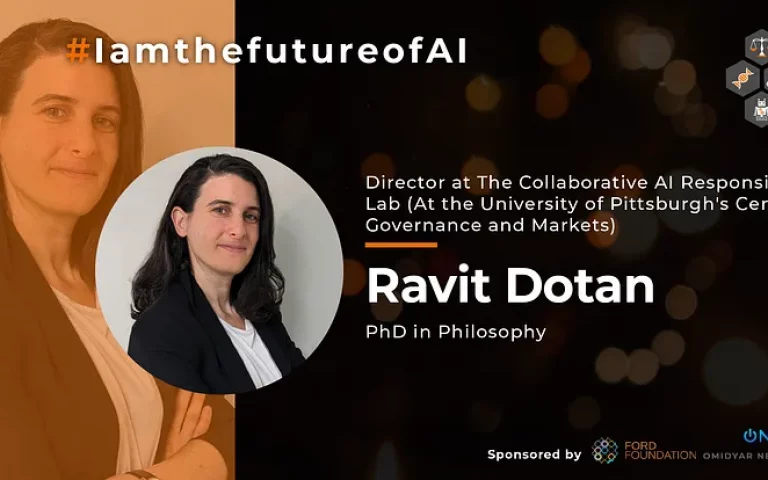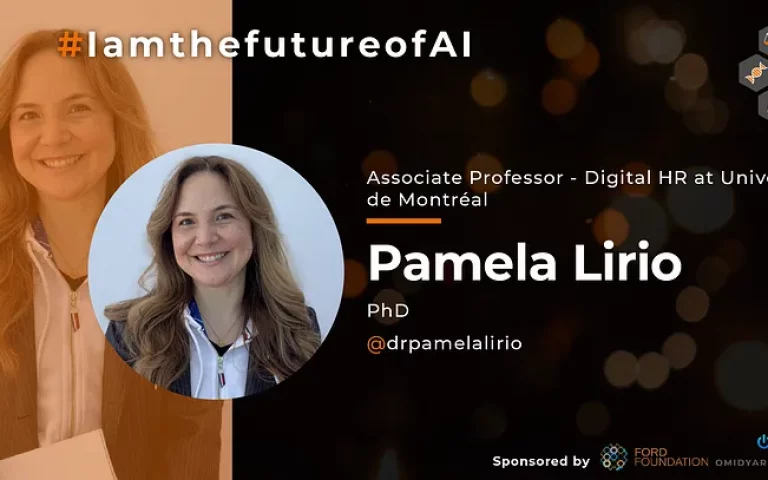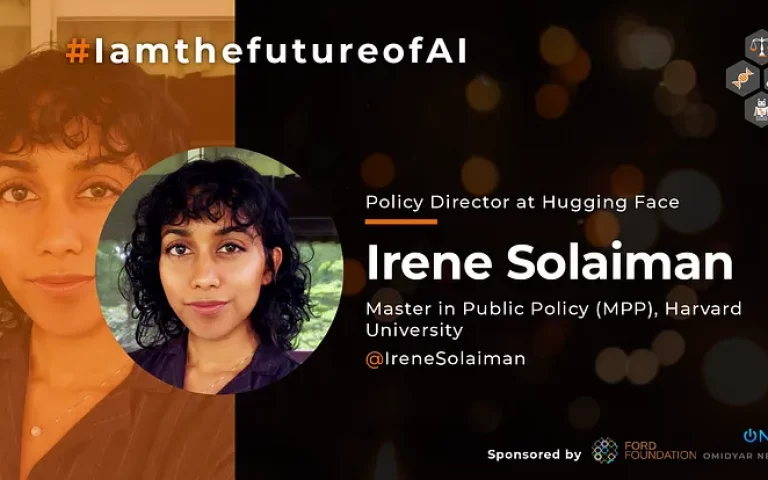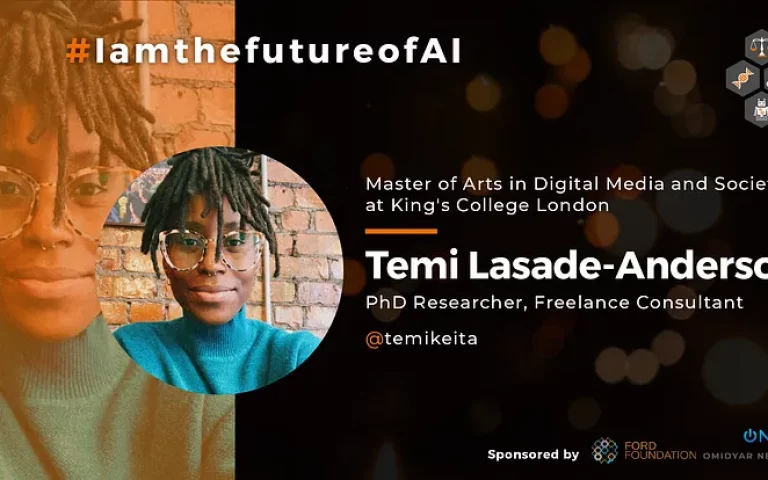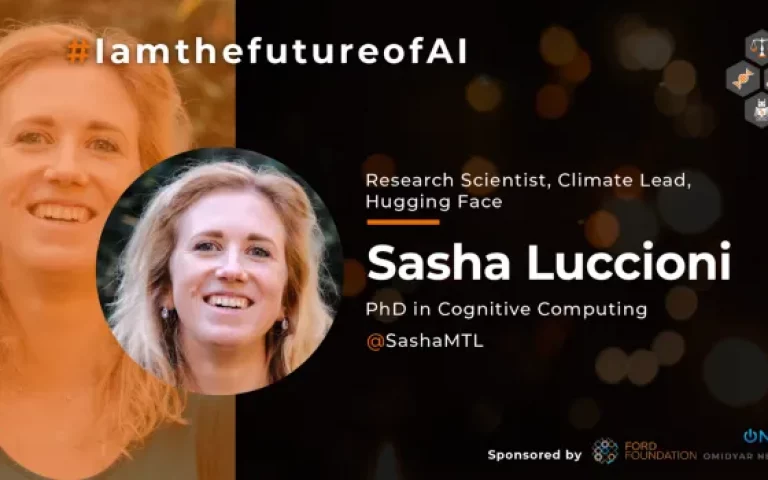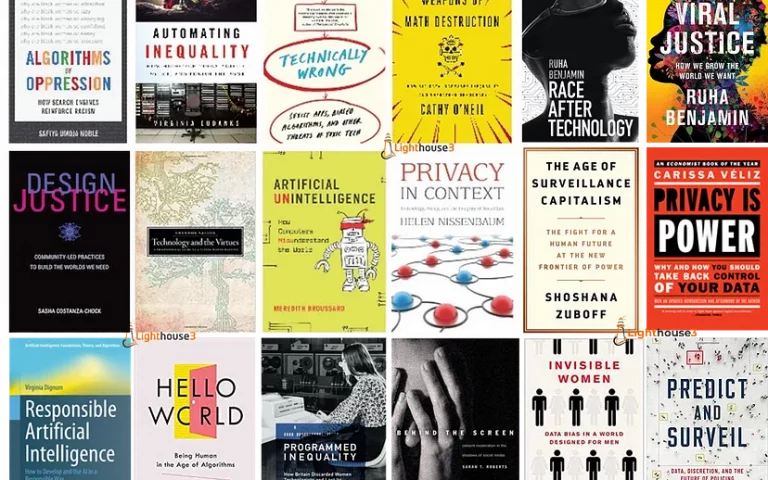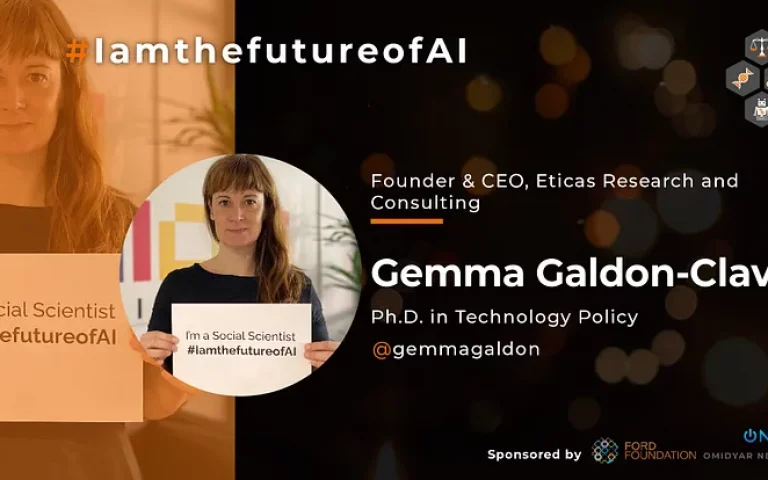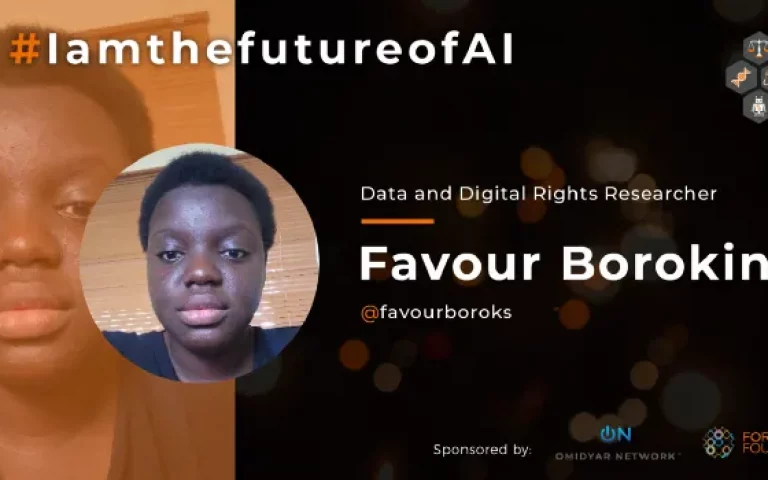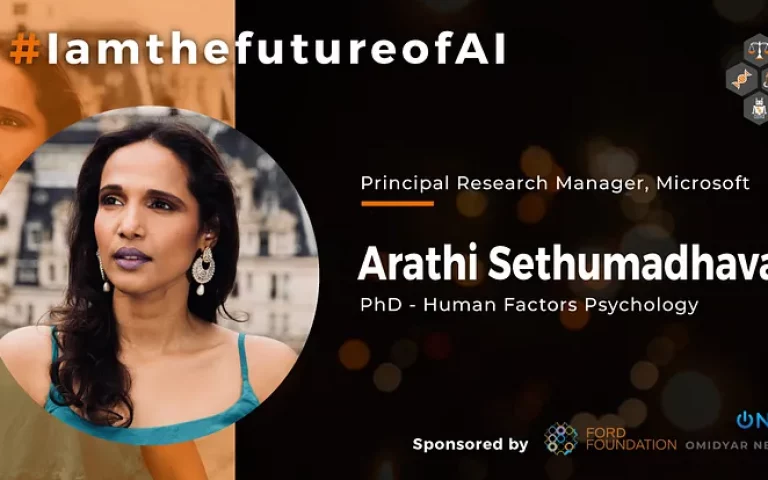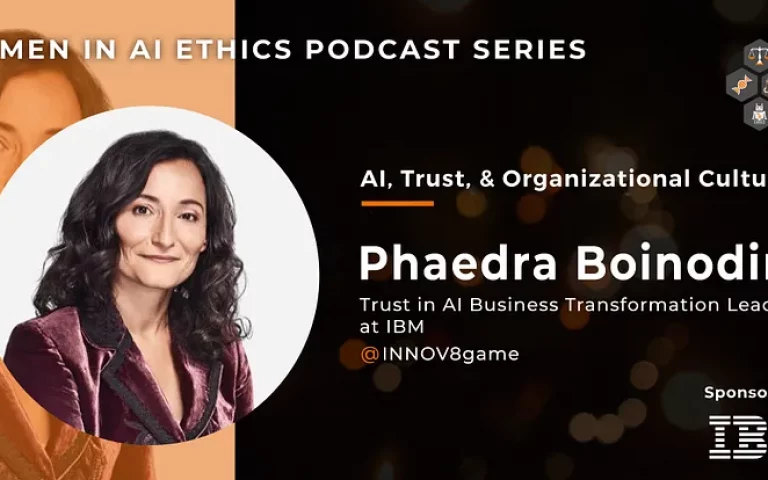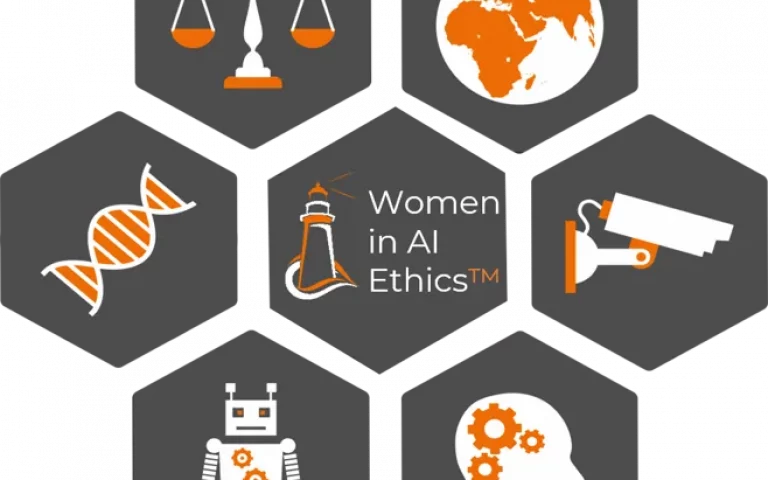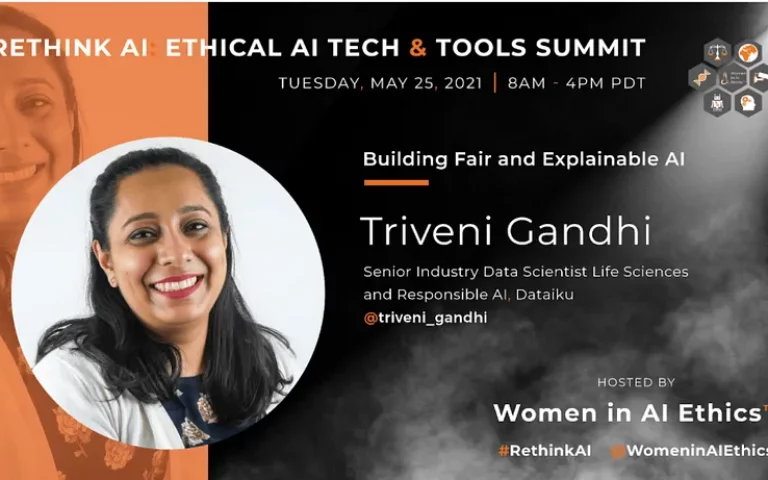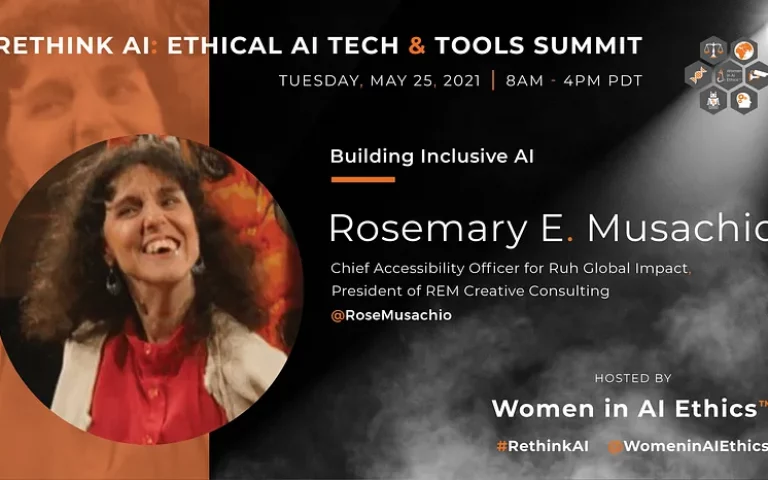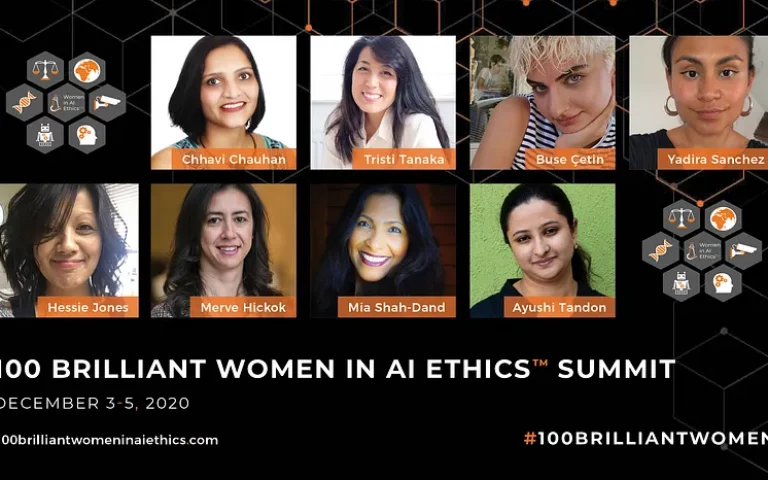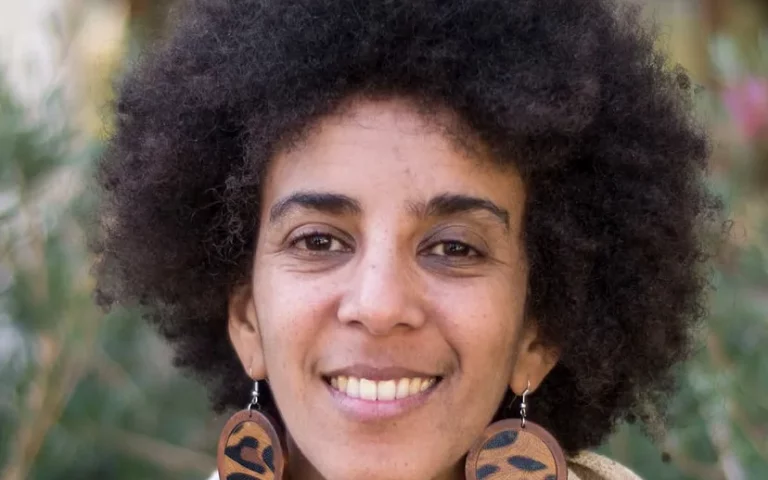Are you a creative looking to break into the AI space? Meet Birgitte Rasine, Founder of Lucita, Inc. She’s not your typical founder. She’s a literary author, a thinker, and a creator — who happens to get technology and what it can (and cannot) do.
Below she shares her career journey, challenges, and some helpful nuggets of wisdom for anyone who needs a gentle push toward pursuing an ethical career in AI.
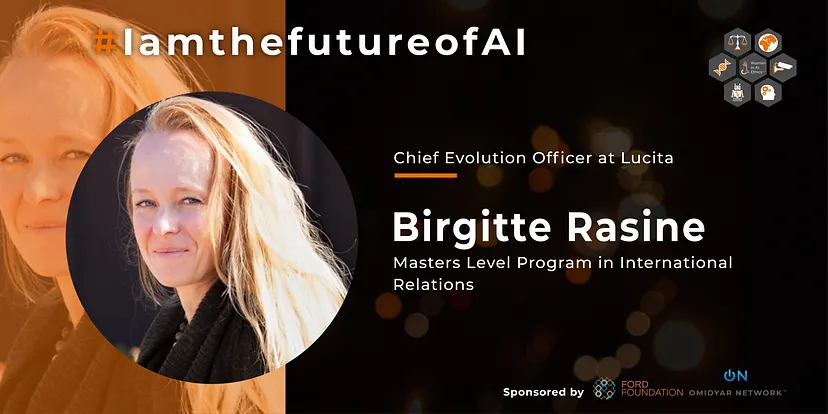
This interview is part of Women in AI Ethics (WAIE)’s “I am the future of AI” campaign launched with support from the Ford Foundation and Omidyar Network to showcase multidisciplinary talent in this space by featuring career journeys and work of women as well as non-binary folks from diverse backgrounds building the future of AI. By raising awareness about the different pathways into AI and making it more accessible, this campaign aspires to inspire participation from historically underrepresented groups for a more equitable and ethical tech future.
Can you share an incident that inspired you to join this space?
The sudden, frenzied, FOMO-driven explosion of interest in generative AI in late 2022, and the revelation of a profoundly extractive colonial mindset on the part of the AI development companies. I’ve never felt artists and creators are so directly threatened by technology.
How did you land your current role?
I had my mid-life career crisis early (mid-twenties), after my first career in Hollywood started to wear on me. I left, went into int’l relations, and I started my company LUCITA in 1999. I helped Google launch its Google Assistant in several international markets, and am also a literary author and publisher — I’ve always had one foot in the literary/art space and the other in cutting-edge high tech.
What kind of issues in AI do you tackle in your day-to-day work?
The continued frenzy of interest in/use of generative AI without thought, care, or empathy for those who are or will be impacted by said interest/use, on an existential, financial, and professional level. Also, consent, privacy, bias, and surveillance.
If you have a non-traditional or non-technical background, what barriers did you encounter and how did you overcome them?
I cannot prove this but it does increasingly feel that algorithms are preventing my work and effort from being seen by a wider audience. I am still trying to overcome them, but find few resources to be able to do so.
Why is more diversity — gender, race, orientation, socio-economic background, other — in the AI ethics space important?
If AI systems and tools are to represent humanity in all of its colors, shapes, and permutations, then it needs to be informed by all of the colors, shapes, and permutations of humanity. There are many concrete examples of the need for this, such as:
Visual recognition tools need to be able to distinguish different colors/structures/features of human faces, and not misidentify people in any way generative AI should not be based on pre-existing biases in the training data (the prompt “beautiful woman” generates a stereotypical young white blonde woman instead of a variety).
Medical sector AI needs to account for the variety and edge cases inherent in human biology.
Writers, artists, and musicians should have the right to protect their original work and prevent it from being used to train generative AI tools w/o their knowledge, permission, or compensation.
What is your advice to those from non-traditional backgrounds who want to do meaningful work in this space on how to overcome barriers like tech bro culture, lack of ethical funding/opportunities, etc.?
If you know journalists, strengthen your relationships with them. Educate them on why it’s important to give space in the media to a variety of people, not just tech bros.
If you are a woman, support your fellow women! Far too often I see passive-aggressive or manipulative, competitive behavior among women in the corporate sector. We ladies really need to support one another.
We need to do the above but without alienating the men who would be our allies.
Invest in tools and resources to help keep your critical thinking mind sharp.
Don’t repeat political or ideological patterns, statements, or beliefs, without thinking through them, without listening to others.
Don’t engage in cancel culture, on either side of the political spectrum, as this only exacerbates tensions and deepens divides. We all lose.
Listen. Get to know people. But know where your own personal boundaries are and why.
Allow yourself to be challenged, every day.
Czech-American author Birgitte Rasine writes literary fiction that twists the beauty and the pain of the human experience into unforgettable strands of storytelling. Inspired by actual events, her stories probe the deeper, if inconvenient, truths about the human psyche and modern society.
Compared by readers to Franz Kafka, James Joyce, and Edgar Allan Poe, Birgitte’s work cracks open the inner core of the human soul to illuminate our eternal quest for freedom and fulfillment.
Descended from the late Dr. Alois Rašín, co-founder of Czechoslovakia (1918) and the nation’s first Minister of Finance, Birgitte emigrated with her family to the United States in the 1980s to flee from political persecution. Since then, her love of storytelling has taken her to four continents to experience a colorful swath of cultural, culinary, and sociopolitical diversity.
It was her travels and conversations with people from all walks of life that enriched Birgitte’s worldview and fed the fires of her propensity to probe beyond the usual pleasantries of social relationships and ask the tougher, deeper questions. Like grapes slowly maturing on the vine, these impermanent but powerful experiences have shaped Birgitte’s signature literary style, for which she has coined a new term: metaphormosis, meaning the process by which one metaphor transitions or blends into another.
In addition to her writing, Birgitte serves as the Chief Evolution Officer (CEO) of LUCITÀ Inc., a hybrid design and communications firm based in Silicon Valley. She is a member of several professional organizations including the Association of Writers and Writing Programs and sits on the board of directors of a Czech and Slovak nonprofit organization in New York City dedicated to supporting the leaders of tomorrow. A graduate of Stanford University, Birgitte also studied professional cinematography at the American Film Institute in Los Angeles and completed a professional master’s degree in international relations at the Instituto Universitario Ortega y Gasset in Madrid, Spain. She lives in Northern California with her family.
You can connect with her on LinkedIn.
